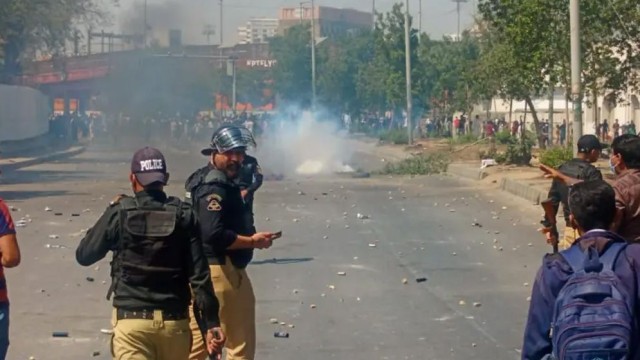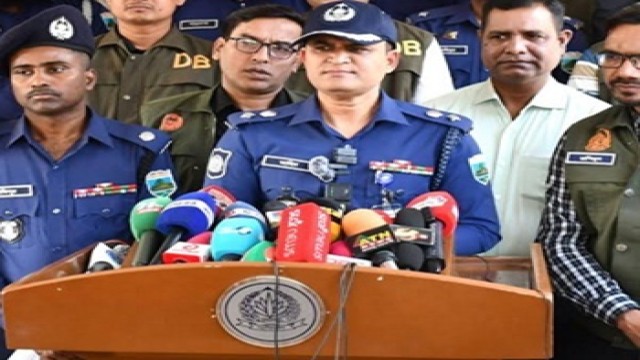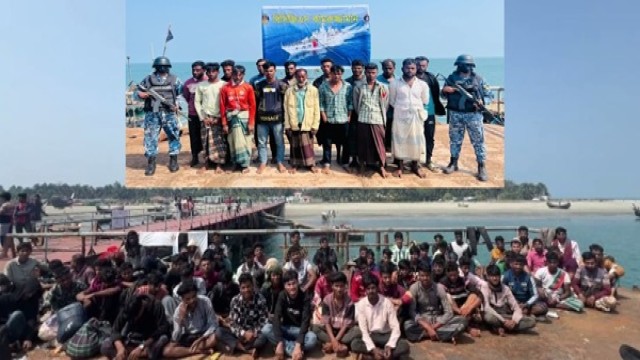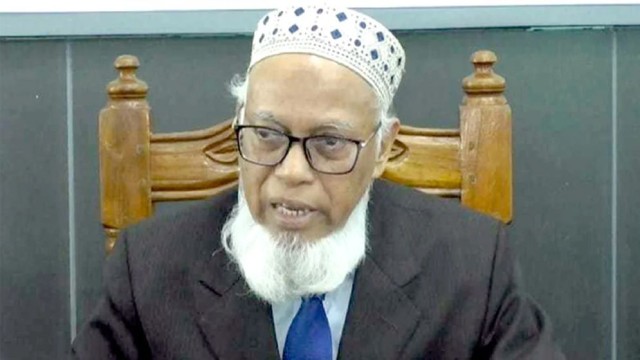Dhaka, April 15, (V7N) –A recent report by the UK Parliament's Home Affairs Committee has shed light on how outdated legal frameworks inadvertently exacerbated anti-immigrant violence last summer, a situation that carries significant implications for Britain's Muslims, diverse South Asian communities, including those of British Bangladeshi, and newly arrived Bangladeshi in UK, British Indian, and Pakistani heritage.
The inquiry revealed that restrictions on disclosing details of ongoing criminal investigations created a vacuum of information online, allowing false narratives, specifically targeting migrant communities, to spread rapidly following the tragic stabbings of three children in Southport in July.
The attack, carried out by Axel Rudakubana, a British-born individual of Rwandan Christian parentage, was swiftly and falsely attributed by far-right activists on social media to a Muslim migrant, the report said.
The misinformation, amplified by the speed and reach of platforms like X (formerly Twitter), incited widespread disorder, it said.
Over several nights, asylum seeker accommodations, mosques, libraries, and community centers – spaces often frequented and considered safe by South Asian communities – became targets of violent attacks.
This period marked the worst street violence seen in the UK in over a decade, since the 2011 riots, according to the report.
The Home Affairs Committee's report underscores the challenges faced by law enforcement in countering such viral misinformation in real time.
Long-standing contempt-of-court rules, designed to ensure fair trials, and the legal constraints on naming suspects under 18 prevented the police from promptly correcting the false information circulating online.
The committee highlighted one particularly damaging tweet, falsely identifying the attacker, which garnered millions of views and thousands of retweets before police could issue a correction – a delay that proved costly in allowing the seeds of hatred and violence to take root, Daily Dazzling Dawn understand.
Conservative lawmaker Karen Bradley, who chairs the Home Affairs Committee, emphasized the exploitation of the tragedy by "bad actors" who capitalized on the information void.
She stressed the urgent need for the criminal justice system to adapt its communication strategies to the realities of the social media age.
The committee's recommendations include a call for government support to establish a national-level system for monitoring and responding to social media content during such crises.
The government has acknowledged the validity of these concerns, stating its agreement that "social media has put well-established principles around how we communicate after attacks like this under strain."
They have commissioned the Law Commission to review the existing contempt of court rules in light of these challenges.
Furthermore, a public inquiry has been launched to investigate the systemic failures that may have contributed to the attacker's actions, given his prior referrals to authorities due to violent tendencies.
For the Bangladeshi, Indian, Pakistani, and wider South Asian communities in the UK, this report serves as a stark reminder of their vulnerability to the rapid spread of misinformation and the potential for such narratives to incite violence against them.
The false accusations following the Southport attack directly targeted a demographic often scapegoated in anti-immigrant rhetoric.
The fact that community spaces like mosques and libraries were attacked underscores the indiscriminate nature of such hate-fueled violence and the sense of insecurity it can generate within these communities.
The report's findings also touch upon the sensitive issue of policing.
While the committee found no evidence to support claims of "two-tier policing" – allegations that those involved in the anti-immigrant violence were treated more leniently than other protest groups – the initial delay in correcting the misinformation may have inadvertently fueled such perceptions among affected communities.
The assurance that those involved in the disorder faced charges for violent acts such as assault and arson is crucial for maintaining public trust and ensuring that all forms of violence are treated with equal severity.
The recommendations of the Home Affairs Committee, if implemented effectively, could offer greater protection to South Asian and other minority communities in the UK.
A more agile and responsive approach to countering misinformation online, coupled with clear and timely communication from law enforcement, is essential to prevent the spread of hate and the incitement of violence.
The review of outdated legal frameworks must prioritize the need to balance fair trial principles with the urgent necessity of dispelling false and harmful narratives in the digital age.
The events of last summer serve as a critical lesson in the interconnectedness of online misinformation, real-world violence, and the safety and security of minority communities.
For the significant Bangladeshi, Indian, and Pakistani populations in the UK, the report highlights the ongoing need for vigilance, community solidarity, and proactive measures to challenge prejudice and ensure their well-being in an increasingly digital and often polarized society.
The effectiveness of future strategies in combating misinformation will be a key determinant in fostering a more inclusive and safer environment for all communities in Britain.
END/MSS/RH/






























Comment: